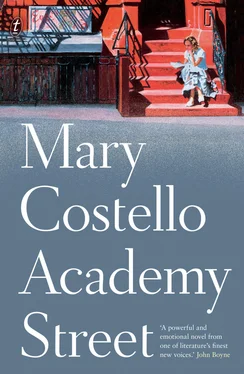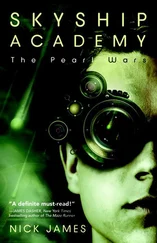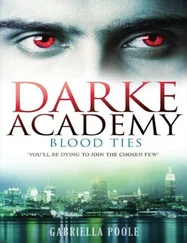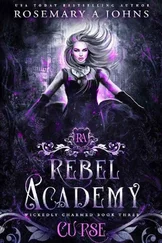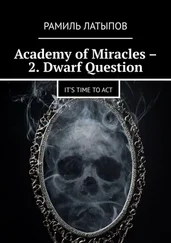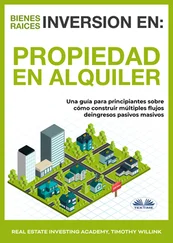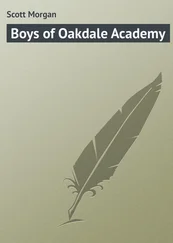Mary Costello - Academy Street
Здесь есть возможность читать онлайн «Mary Costello - Academy Street» весь текст электронной книги совершенно бесплатно (целиком полную версию без сокращений). В некоторых случаях можно слушать аудио, скачать через торрент в формате fb2 и присутствует краткое содержание. Год выпуска: 2014, Издательство: Text Publishing Company, Жанр: Современная проза, на английском языке. Описание произведения, (предисловие) а так же отзывы посетителей доступны на портале библиотеки ЛибКат.
- Название:Academy Street
- Автор:
- Издательство:Text Publishing Company
- Жанр:
- Год:2014
- ISBN:нет данных
- Рейтинг книги:3 / 5. Голосов: 1
-
Избранное:Добавить в избранное
- Отзывы:
-
Ваша оценка:
- 60
- 1
- 2
- 3
- 4
- 5
Academy Street: краткое содержание, описание и аннотация
Предлагаем к чтению аннотацию, описание, краткое содержание или предисловие (зависит от того, что написал сам автор книги «Academy Street»). Если вы не нашли необходимую информацию о книге — напишите в комментариях, мы постараемся отыскать её.
J.M. Coetzee
Academy Street This is an intimate story about unexpected gifts and unbearable losses, and the perpetual ache for belonging. It is exquisitely written and profoundly moving.
Academy Street — читать онлайн бесплатно полную книгу (весь текст) целиком
Ниже представлен текст книги, разбитый по страницам. Система сохранения места последней прочитанной страницы, позволяет с удобством читать онлайн бесплатно книгу «Academy Street», без необходимости каждый раз заново искать на чём Вы остановились. Поставьте закладку, и сможете в любой момент перейти на страницу, на которой закончили чтение.
Интервал:
Закладка:
Mary Costello
Academy Street
PRAISE FOR MARY COSTELLO ACADEMY STREET
‘With extraordinary devotion, Mary Costello brings to life a woman who would otherwise have faded into oblivion amid the legions of the meek and the unobtrusive.’
J. M. COETZEE
‘I read Academy Street cover to cover in one night, unable to stop. It is a short novel about a long life, stretching from rural Ireland to post-9/11 New York, and brings to mind the elegance of Colm Tóibín and the insight of Alice Munro. Its stealthy, quiet power will exert a hold over any reader.’
MAGGIE O’FARRELL
‘To recount a life story in a novel is a difficult task. To do so with brevity and unsentimental honesty takes greatness. A powerful and emotional novel from one of literature’s finest new voices.’
JOHN BOYNE
‘Intensely moving but never sentimental, Academy Street is a profound meditation on what Faulkner called “the human heart in conflict with itself”. In Tess Lohan, Mary Costello has created one of the most fully realised characters in contemporary fiction. What a marvel of a book.’
RON RASH
‘ Academy Street is understated, graceful and, ultimately, devastating. Even as my heart was breaking I couldn’t put the book down.’
DONAL RYAN
The China Factory
‘It is the accumulation of tiny pleasures…that makes The China Factory such a satisfying and accomplished debut…Her writing has the kind of urgency that the great problems demand — call them themes; they are the kind of problem that make a writer. With a bit of luck, they could keep her at the desk for the rest of her life.’
ANNE ENRIGHT, Guardian
‘A collection of exquisite stories so intricately wrought, so unique and enthralling as to be utterly bewitching.’
Sunday Independent
‘These stories resonate profoundly together, whether through powerful parallels or upsetting contrasts.’
Australian
‘Accomplished and often very moving, plunging straight into those moments in life that can seal a person’s fate. The Sewing Room in particular is a brilliant and terrifying tale of loss.’
Sydney Morning Herald
‘The twelve short stories of The China Factory are each little gems…Creating the perfectly told and balanced short story is a true art, and Costello has mastered it.’
Weekly Times
‘The subtle underpinnings, the intuitive capacities — the eye for detail, the feel for language, the care of it — are much in evidence…One hopes to read more of Mary Costello.’
MOLLY McCLOSKEY, Irish Times
‘A powerful collection from a very fine unshowy writer.’
Irish Independent
‘Fears of the future, haunting memories of the past and day-to-day internal struggles take her characters to unexpected places, often surprising the reader. Each has a compelling story and Costello tells them with such an intensity of human emotions that it’s impossible to feel unmoved by their plight.’
Weekend Press , Christchurch
‘Costello’s…style is honed down to deceptively simple profundity, capturing emotional essence with breathless economy.’
West Australian
ABOUT THE AUTHOR
Mary Costello lives in Dublin. Her collection of short stories, The China Factory , was nominated for the Guardian First Book Award. Academy Street is her first novel.
ACADEMY STREET
For my mother, Ann and her sisters, Carmel and Clare
In the depths of the winter I finally learned that there lay in me an unconquerable summer.
ALBERT CAMUSPART ONE
1
IT IS EVENING and the window is open a little. There are voices in the hall, footsteps running up and down the stairs, then along the back corridor towards the kitchen. Now and then Tess hears the crunch of gravel outside, the sound of a bell as a bicycle is laid against the wall. Earlier a car drove up the avenue, into the yard, and horses and traps too, the horses whinnying as they were pulled up. She is sitting on the dining-room floor in her good dress and shoes. The sun is streaming in through the tall windows, the light falling on the floor, the sofa, the marble hearth. She holds her face up to feel its warmth.
For two days people have been coming and going and now there is something near. She wishes everyone would go home and let the house be quiet again. The summer is gone. Every day the leaves fall off the trees and blow down the avenue. She thinks of them blowing into the courtyard, past the coach house, under the stone arch. In the morning she had gone out to the orchard and stood inside the high wall. It was cold then. The pear tree stood alone. She walked under the apple trees. She picked up a rotten yellow apple and, when she smelled it, it reminded her of the apple room and the apples laid out on newspapers on the floor, turning yellow.
She lies back on the rug and looks up at the pictures on the wallpaper. Adam and Eve in the Garden of Eden. Her mother told her the story. She picks out the colours — dark green, blue, red — and follows the ivy trailing all over the wallpaper, all around Adam and Eve. They are both naked except for a few leaves. Eve has a frightened look on her face. She has just spotted the serpent. A serpent is a snake, her mother said. The apple tree behind Eve is old and bent, like the ones in the orchard.
She feels something in the room. A whishing sound, and a little breeze rushes past her. She sits up, blinks. A blackbird has flown into the room. It flies around and around and she smiles, amazed, and opens her arms for it to come to her. It perches on the top of the china cabinet and watches her with one eye. Then it takes off again and comes to rest on the wooden pelmet above the curtains. It starts to peck at a spot on the wall. She holds her breath. She listens to the tap-tap of its beak, then a faint tearing sound and a little strip of wallpaper comes away and the bird with the little strip like a twig in its beak rises and circles and flies out the window. She looks after it, astonished.
The door opens and the head of her sister Claire appears. ‘Is this where you are? Tess! Come on, hurry on!’
Something is about to happen. Her older sisters Evelyn and Claire are home from boarding school. She loves Claire almost as much as her mother, or Captain the dog. More than she loves Evelyn, or Maeve her other sister, or even the baby. Equal to how she loves Mike Connolly, the workman.
The door opens again, and Claire holds out her hand urgently for Tess to come. There are people standing around the hall, waiting. The front door is wide open and outside there are more people. She can hear their feet crunching the gravel and the hum of low talk. She looks around at the faces of her aunts and cousins, her neighbours. Her teacher Mrs Snee is smiling at her. Claire pulls her close — they are standing next to Aunt Maud now — and squeezes her hand and bows her head. Suddenly she is frightened.
A shuffle on the upstairs landing and everyone goes quiet. Men’s voices, half whispering but urgent, drift down from above. She thinks there must be a lot of people up there but when she looks up there are only shadows and shoulders beyond the banisters. She sighs. She will soon need to go to the bathroom. She looks down at her new shoes. She got them in Briggs’ shop in the town during the school holidays, along with the green dress she is wearing. Her mother got new shoes that day too. And a new blue dress. Her mother bent down to tie her laces and Tess left her hand on her mother’s head, on the soft hair.
Читать дальшеИнтервал:
Закладка:
Похожие книги на «Academy Street»
Представляем Вашему вниманию похожие книги на «Academy Street» списком для выбора. Мы отобрали схожую по названию и смыслу литературу в надежде предоставить читателям больше вариантов отыскать новые, интересные, ещё непрочитанные произведения.
Обсуждение, отзывы о книге «Academy Street» и просто собственные мнения читателей. Оставьте ваши комментарии, напишите, что Вы думаете о произведении, его смысле или главных героях. Укажите что конкретно понравилось, а что нет, и почему Вы так считаете.
